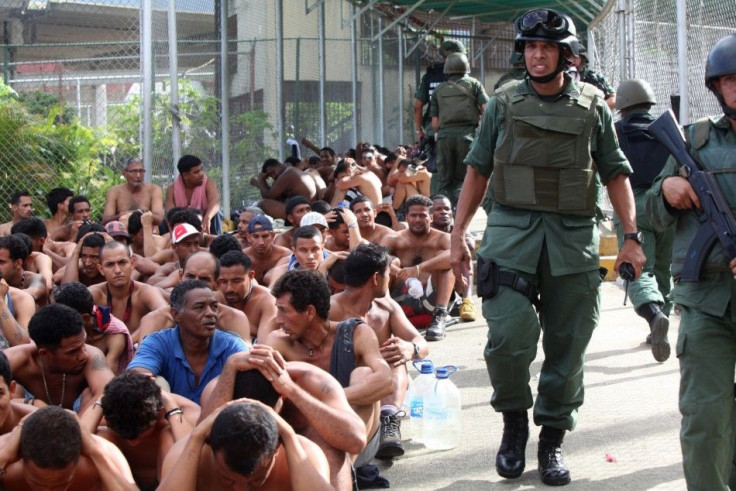Riot Highlights Venezuela's Dysfuntional Prisons

Venezuelan's minister of the prison system Iris Varela said that the leaders of the rebellion at Cepra penitentiary in Merida state had surrendered after weeks of negotiation, and that no one was injured in the police operation to regain control of the prison.
The leaders of the riot are already in the hands of the authorities, Varela said on Venezuelan state TV.
There will be no longer armed inmates in the prison, we will not have a situation like that in Merida state again.
The prisoners were said to be protesting transfers to other jails in Venezuela's notoriously overburdened prison system, where some detention facilities hold up to three times as many inmates beyond capacity and violence is pervasive.
Venezuelan prisons are among the most violent in Latin America, Human Rights Watch wrote in its most recent annual report on Venezuela.
Weak security, deteriorating infrastructure, overcrowding, insufficient and poorly trained guards, and corruption allow armed gangs to effectively control prisons. Hundreds of violent prison deaths occur every year.
This month's prison riot follows one in June 2011 at the El Rodeo penitentiary, where at least 25 people were killed, including both inmates and National Guard members responding to the incident.
The majority of prison deaths, however, occur amongst the everyday lawlessness that permeates life in Venezuela's jails.
According to the watchdog organization Venezuela Observatory of Prisons, 560 prisoners were killed and nearly 1,500 injured as a result of violent activity within detention facilities in 2011, up 17.6 percent from the previous year, the Associated Press reported.
Varela acknowledged the problem of overcrowding when she was appointed back in August 2011.
Of Venezuela's 50,000 inmates, 20,000 shouldn't be in jail, she said, adding that 20,000 inmates convicted of minor crimes would be released.
Nevertheless, the Venezuelan government has been criticized by rights organizations for intimidation of watchdog organizations like the Observatory.
The head of the Observatory Humberto Prado has been publicly accused by government officials of trying to destabilize the prison system and politically destabilize the country, HRW documented in a July 2012 report titled, Tightening the Grip: Concentration and Abuse of Power in Chavez's Venezuela.
HRW contends that the Venezuelan government has failed to protect Prado against anonymous threats, while characterizing him as a political agitator, colluding with opposition groups and international media.
In January 2012, Varela told state media that an intelligence report shows contacts of Humberto Prado ... with international media, trying to agitate an international campaign.
The report also cites a case documented by the Forum for Life, a consortium of human rights organizations, in which anonymous individuals published Prado's home address and phone number on a blog with a note saying, Family information to come soon ... so that the people may try him. Capital Punishment.
© Copyright IBTimes 2024. All rights reserved.











